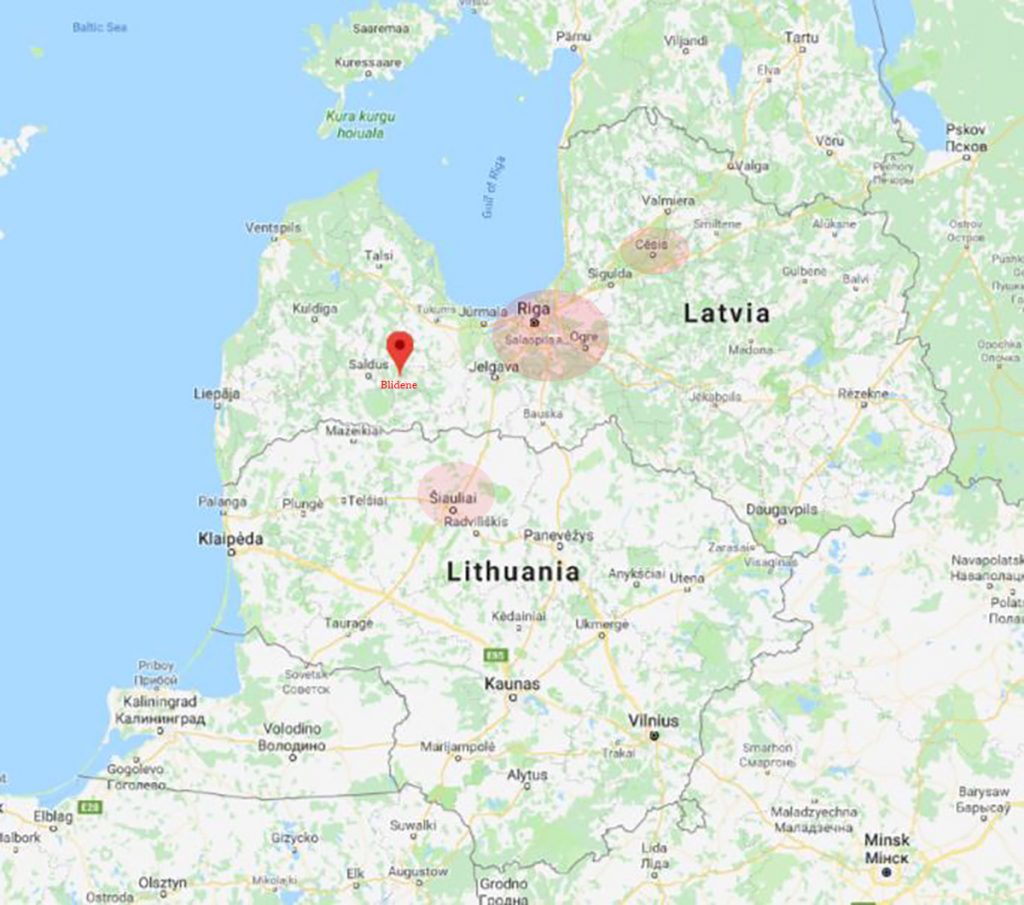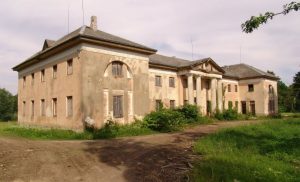What part did a Manor House play in the surname of Blieden?
Where did the Bliedens come from and how did they get the name Blieden?
The name Blieden originated in Latvia, yet our oldest ancestor lived in Zagare, Lithuania. Then Aron (Ber’s son) moved back to the Riga, Latvia area, probably to Wenden. Will we ever know what caused this migration?

Note the location of Blidene to Siauliai (Lithuania), Riga (Latvia), and Cespis (Wenden, Latvia)
What we do know is that, unfortunately, in the Latvia and Lithuania area, surnames were not required by the Jewish population until 1812 when the Jews were emancipated. Not until 1844 were Russian Jews required to enter a family name in a public register. To simplify the recording of tax collections and service in the military, Jews were finally required to adopt surnames in Austria-Hungary in 1787 , in the German states in1790, and in the Russian Empire in 18040.
At first, surnames were picked as a way to sort people into groups: by occupation, place of origin, clan affiliation, patronage, parentage, adoption, and also by physical characteristics (like red hair).
Interestingly enough, people within the same family could pick different surnames if they were living in different households. For example, 2 married brothers living in separate residences could pick different names. Why would they do this?
- To avoid harsh taxation inflicted on the Jews
- To avoid military conscription policies for Jews living in the Pale of Settlement.
Before 1827, Czarina Katherine the Great, did not call the Jewish community to serve in the army, but they had to a pay double tax instead. Taxes were based on the number of males in the household. It became beneficial to have smaller household units and this encouraged different names in the same family. After 1827, according to a law issued by Czar Nicolas I, Jews were summoned to conscription.
The name Blieden is thought to be derived from a Latvian private estate castle, Blieden. This was located 13 kilometers to the north east of Frauenburg, in Kurland. There were 2 sections to the estate: Gross (big) and Klein (small) Blieden, The estate was the property of the family, von der Recken Neueburg from 1576 to 1716. The main property was farmed by peasant workers who were required to give the harvested crops to the owner. There were also tenant farmers who worked the fields of the estate owner, but kept a percentage of the crops in exchange for their work. It is thought that family members of the Bliedens were involved in this occupation as they were recorded to be grain merchants. It is assumed that all of the Bliedens originated from this area.
Blidene or Blidiene is 52.8 miles west, southwest of Riga. By the way, today the estate still exists, but it is deserted and in disrepair.

Blidene Manor House, Blidene, Latvia
What was it like for Jews in Riga and Wenden during this time period?
What was it like living in a shtetl in Lithuania during this time period?
Besides the spelling of “Blieden”, relatives use the following spellings: Bliden, Bleeden, Bleadon, Bleiden, Blyden.
Information for this section came from:
- https://www.avotaynuonline.com/2015/08/the-jewish-surname-process-in-the-russian-empire-and-its-effect-on-jewish-genealogy
- https://www.ancestry.com/name-origin?surname=bliden
- From Ben Lipkowitz’ History of the Bliedens, 2007
- Picture of Blidene Manor House from https://static.panoramio.com.storage.googleapis.com/photos/large/95627510.jpg
- Map from Google Maps
Outstanding research questions.
- Who was the first Blieden to use the name Blieden and did they live in the Latvia
- When did Mordekhl’s family first settle in Zagare
- When did Aron move back to Latvia
